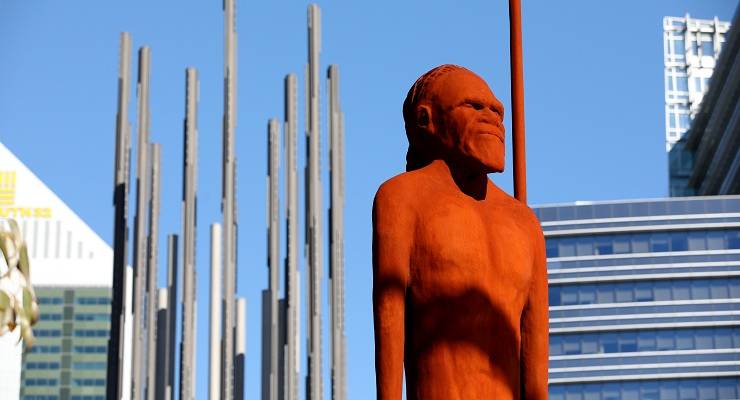
A group of six claimant groups across Perth and south-west Western Australia have been granted a historic land rights settlement. Experts say it’s Australia’s first treaty with Indigenous people.
The settlement covers 200,000 square kilometres and formalises six land-use agreements which recognise Noongar people as traditional owners of the land. It’s worth an estimated $1.3 billion and covers nearly 30,000 Noongar people.
University of NSW constitutional lawyer and native title expert George Williams told Crikey the settlement was historic.
“This is the first time in our history we’re seeing strong government engagement in dealing with unfinished colonisation,” he said.
“It’s a breakthrough because of its scale and size. I think it’s akin to having a treaty.”
Complex negotiations for the land began in 2009, followed by five years of appeals to the agreement by the six groups — Ballardong, Gnaala Karla Booja, South-West Boojarah, Wagyl Kaip and Southern Noongar, Whadjuk, and Yued. The agreement was passed yesterday after a final appeal by a breakaway Noongar group was dismissed by the High Court.
“This should be celebrated and give us hope to move on from the sorry patterns of history,” Williams said.
“Governments are recognising they need a more streamlined and direct process for land settlement.”
What does it mean?
The settlement recognises the Noongar people as a distinct political community. It means cash, land, housing and other benefits will be made available to them, and give the group greater say over how their land is governed.
“The outcome will depend on their own leadership, which is the nature of self-regulation, away from government-imposed outcomes,” Williams said.
Indigenous-led initiatives have had success in curbing the spread of COVID-19, with Indigenous populations making up less than 1% of all COVID-19 cases during the peak of the epidemic.
South West Land and Sea Council chair Vanessa Kickett told the ABC it was a proud moment.
“We’ve always known we’re the biggest Aboriginal group in Australia and we’ve continued to practise our law and culture. Being a Noongar, it’s such a proud moment for all of us.”
Legislative overhaul needed for real change to be made
Victoria is streamlining its native land title claims process — though Victorian Greens Senator and Gunnai and Gunditjmara woman Lidia Thorpe told Crikey the Noongar treaty wasn’t likely to kick off a wave of claims across her state.
“People don’t have faith in the process given a number of nations and clans were denied a seat at the table,” she said.
The Victorian government is in treaty negotiations with the First Peoples’ Assembly — although this assembly features just 11 of the 38 clans across the state.
“Any deals that have been done in Victoria to date have been through manufactured consent through a bureaucratic process that is top-down, instead of bottom-up,” Thorpe said.
“We need an overhaul of the cultural heritage legislation.”








“A group of six claimant groups across Perth and south-west Western Australia have been granted a historic land rights settlement.”
Great news. But where exactly is this land in the South West of Western Australia? It’s a big place.
There’s some nice riparian land along the Swan near Murdoch uni.
Ideal for some semi read Rousseauean wankers to ‘swan’ about like Antipodean Marie Antoinettes.
Oh dear, “…It means cash, land, housing and other benefits will be made available…“.
That is going to end so well.
What is that axiom about doing the same thing over & over and expecting a different result?
And you wonder why your posts on another subject were delayed, waiting for approval.
Are you privy to the actual nature of the settlement, the agreements between the various indigenous groups, the land rights actually ‘granted’ to the people whose country it was initially?
Being given back land which was forcefully taken, made largely unsuitable for traditional lifestyles, and overrun by foreigners who treat them like dirt, is hardly a generous move.
Privy to nothing except history.
It may not repeat but it does rhyme.
money is not the solution but it appears to placate most “first nations” people